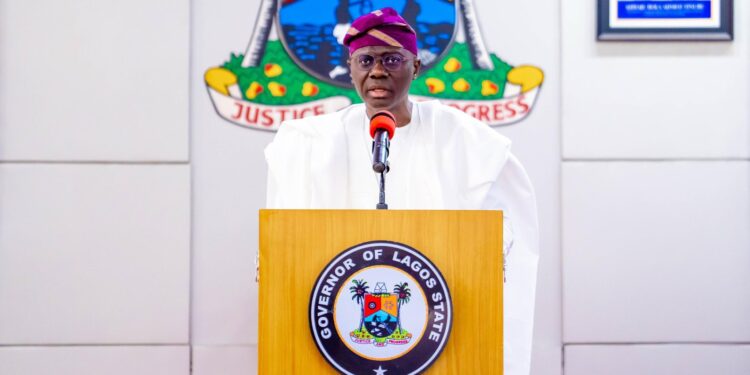The Lagos State Government has launched a new wave of digital safety innovations, deploying drones and real-time monitoring tools to enhance workplace safety and curb occupational hazards across all industries.
The initiative was announced at the third Lagos State Occupational Safety and Health Conference (LASOSH), marking a major milestone in the state’s push to eliminate workplace injuries through data-driven technology and structured supervision.
According to a statement released on Tuesday by Gboyega Akosile, the Special Adviser on Media and Publicity to Governor Babajide Sanwo-Olu, the move reflects the administration’s commitment to building a proactive safety culture across sectors. The conference, held at the Lagos Oriental Hotel, Victoria Island, was organised by the Lagos State Safety Commission (LSSC).
Governor Sanwo-Olu explained that Lagos has begun integrating advanced tools — including drones, safety applications, and body cameras with thermal sensors — to enable real-time hazard detection and quicker emergency response in high-risk industries such as construction, manufacturing, and hospitality.

“The future of safety lies in technology and data,” the governor said. “Lagos has taken the lead with the deployment of a safety app that empowers citizens to report hazards in real time, drones for aerial surveillance of high-risk zones, and body cameras with thermal functionalities to support compliance monitoring, enforcement, and emergency response.”
He described these investments as part of a “predictive governance” strategy, allowing the government to detect potential risks early, analyse emerging safety trends, and act proactively rather than reactively.
“These tools are deliberate investments in predictive governance,” Sanwo-Olu added. “They help us identify safety issues as they emerge, study trends, and act swiftly. Lagos is setting the pace by using innovation not only to secure today but to anticipate tomorrow.”
The governor also inaugurated the “Safety First Campaign” and unveiled the Occupational Safety Cadre, described as the first of its kind in Sub-Saharan Africa. The cadre aims to institutionalize safety management as a professional discipline within the Lagos State public service, ensuring that workplace protection is managed by trained experts and embedded in governance systems.
Sanwo-Olu noted that the new measures form part of the implementation of the Lagos State Safety Policy, the state’s first comprehensive safety framework, which has already reduced workplace incidents and improved accountability across major sectors.

Through the Lagos State Safety Commission (LSSC), the government has carried out numerous targeted interventions, supported by routine and surprise inspections to enforce safety standards. Sanwo-Olu said the creation of zonal safety offices across the state has brought safety oversight closer to communities, resulting in quicker response times and stronger public awareness.
Olugbenga Oyerinde, the Commissioner for Special Duties and Intergovernmental Relations, reaffirmed the state’s commitment to ensuring safe work environments, emphasizing that effective safety management is essential to Lagos’ industrial and economic growth.
Meanwhile, Dr. Lanre Mojola, the Director-General of the LSSC, revealed that compliance levels in the manufacturing and construction sectors have improved significantly in the past three years, thanks to intensified enforcement.
He further disclosed that the Commission plans to integrate Artificial Intelligence (AI) into its safety monitoring systems to enhance predictive analysis of workplace risks and strengthen inspection efficiency.
“We are implementing the Reporting of Injuries, Incidents and Dangerous Occurrences Regulations (RIIDOR) to improve accountability and safety reporting across all workplaces,” Mojola said.
According to him, combining AI-powered analytics, drone surveillance, and digital reporting systems will allow Lagos to detect potential risks early and work toward the ultimate goal of injury-free workplaces across the state.




